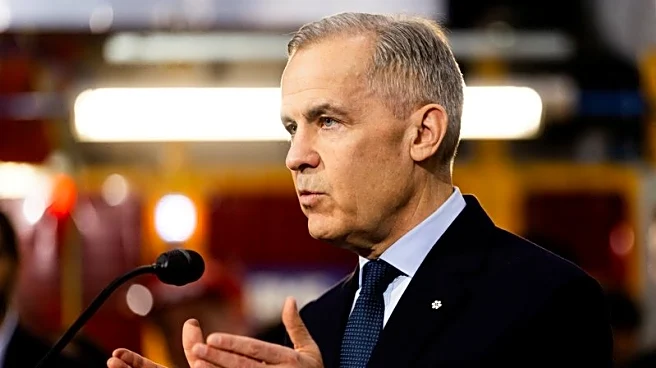Rapid Read • 8 min read
President Trump has postponed tariff talks with China for another 90 days, a move that has significant implications for the global chips trade. The delay in negotiations comes amid concerns from U.S. lawmakers and national security experts about the potential consequences of the trade deal. The agreement includes Nvidia paying 15 percent of its revenue from AI chip sales to China, raising questions about the perception of U.S. companies like Nvidia, Apple, and Tesla as independent entities versus extensions of U.S. government policy. This development is part of a broader discussion on the nature of capitalism promoted by the U.S. and its potential shift in the global economic landscape.
AD
The postponement of trade talks between the U.S. and China affects the global economy, particularly the technology sector. The deal involving Nvidia could alter the competitive landscape for AI technology, with potential repercussions for other major tech companies. The agreement may also influence how international markets perceive U.S. companies, potentially viewing them as state-influenced rather than independent. This shift could impact investor confidence and the strategic decisions of multinational corporations. Additionally, the delay in negotiations prolongs uncertainty in trade relations, affecting industries reliant on stable U.S.-China economic interactions.
The next steps involve monitoring the ongoing negotiations between the U.S. and China, with particular attention to how the postponed talks will resume after the 90-day period. Stakeholders, including tech companies and policymakers, will likely assess the implications of the Nvidia deal and its impact on U.S.-China relations. The broader economic and political ramifications of the trade talks will continue to be a focal point for analysts and industry leaders, as they navigate the complexities of international trade and technology development.
The ethical and strategic dimensions of the trade deal raise questions about the future of U.S. capitalism and its influence on global markets. The perception of U.S. companies as extensions of government policy could lead to shifts in international business practices and regulatory approaches. This development may also spark debates on the role of government in private enterprise and the balance between national security and economic growth.
AD
More Stories You Might Enjoy













